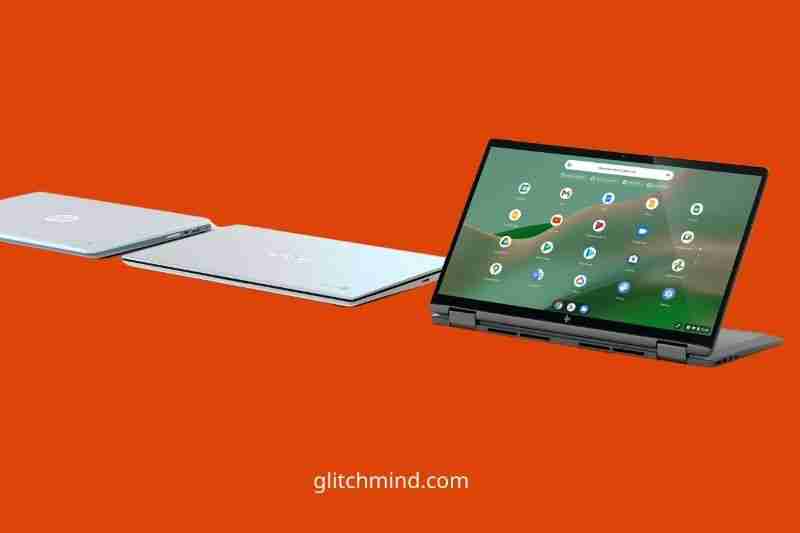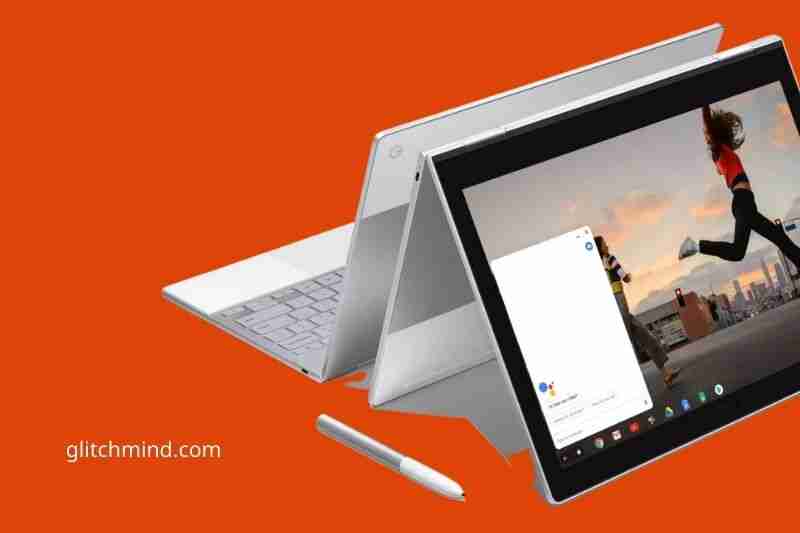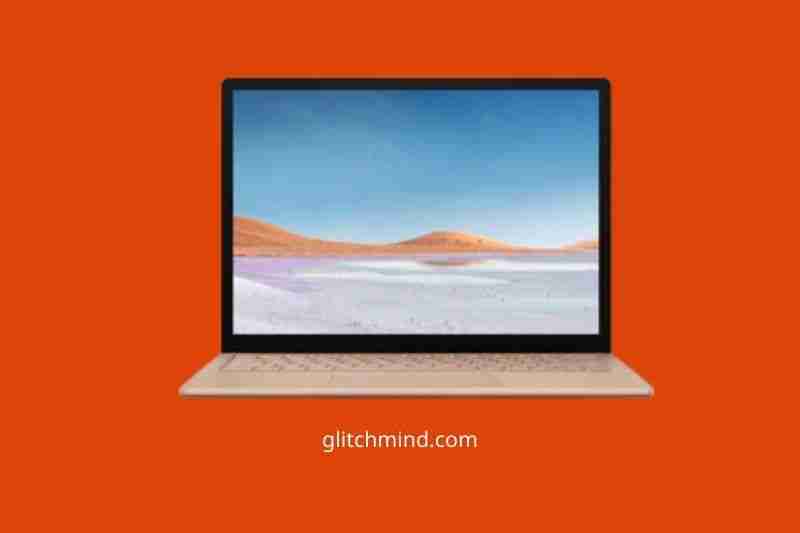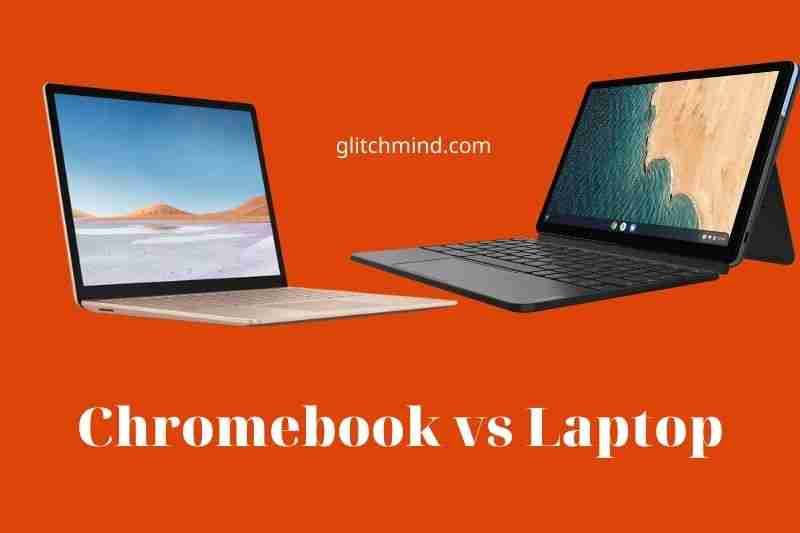When choosing between a Chromebook vs laptop, it is important to consider what you will be using the device for. If you need a device for general web browsing and emailing, a Chromebook may be good. Chromebooks are lightweight and have long battery life, making them ideal for travel. They also tend to be more affordable than laptops. If you need a device for more intensive tasks such as video editing or gaming, a laptop is a better option.
What is a Chromebook?
Chromebooks were lightweight, low-cost computers based on Google’s new platform named Chrome OS when they first launched in 2011. Instead of conventional software, these laptops depended heavily on cloud-based apps. Their more inexpensive character has altered through time, yet value remains at the core of what a Chromebook delivers.
Chromebooks are available in various sizes, from ultrabooks to 2-in-1 hybrids to typical clamshell laptops from Acer, Asus, HP, Dell, Lenovo, and Samsung.
The less expensive versions are often more extensive and less potent than the thinner, sleeker premium counterparts. These entry-level Chromebooks are frequently encountered in schools or as first-time personal computers. Higher-end Chromebooks, such as Google’s Pixelbook, include luxury metal casings, powerful Intel Core CPUs, and, in some instances, 4K displays.
Although you can’t purchase a $2,000 Chromebook like a Windows 10 laptop or MacBook, there are now a variety of alternatives available based on your requirements.
What is a good Chromebook?
Several years ago, regardless of manufacturer, all Chromebooks were essentially the same. There is now a far more comprehensive range of laptops, two-in-ones, convertibles, and tablets that can use Chrome OS’s present features. When it comes to Windows laptops, you’ll still find more sizes and designs, particularly if you require top processing and graphics capabilities, but the choice is much more excellent than in the past.
If all you want is a pleasant, essential experience with a Chromebook, the compact, lightweight OS has minimum hardware requirements, as do online applications. A faster, higher-end CPU, more memory, and more storage for files and programs can help keep demanding multitaskers going; an Intel Core i-series or AMD Ryzen processor, 8GB of memory, and a 128GB SSD for storage will get you far, but it will be expensive.
When asked what fundamental Chromebook specifications to look for, I propose the following:
- Processors from Intel (Celeron or Pentium), Qualcomm, or MediaTek
- Memory capacity of 4GB
- 64GB of storage space
- Full HD (1,920×1,080-pixel) resolution display
These guidelines are open to interpretation. A 1,366×768-resolution display, for example, is available, but the inexpensive ones used in low-end Chromebooks seem notably soft compared to full-HD machines. And if there’s a microSD card slot to augment it or you don’t intend to download many Android applications, 32GB of internal storage is plenty. Unlike a traditional laptop, a Chromebook depends on cloud storage for data rather than local storage. It’s also worth mentioning that storage and memory are often soldered on and cannot be changed after the fact, so you should plan.
Regardless of the Chromebook you choose, you should check the device’s Auto Update Expiration date, or AUE, before purchasing it. Non-Google hardware is currently only supported for a limited time before getting Chrome OS and browser upgrades, including security patches. The date is typically seven to eight years after the device’s first introduction for models introduced recently. However, this is not always the case. Google has a list of AUE dates for all models, which you should verify before purchasing a new or old Chromebook.

What can and can’t I do with a Chromebook?
When Chrome OS first debuted, it was just Google’s Chrome web browser. The ordinary Chromebook seems to be nothing more than a laptop that runs a web browser for people used to operating systems such as Windows and Mac.
Even if the Chrome OS never progressed beyond that, the truth is that a lot can now be done solely on the web.
Take stock of everything you do daily, and you could discover that there’s nothing you can’t perform using Chrome at its most basic level.
A Windows laptop or a MacBook can run the Chrome browser and other software supported by those operating systems. Even if you don’t need a particular software right away, it’s lovely to have the choice. Furthermore, if you’re looking for a Chromebook for remote study using Google Classroom, a Mac or Windows PC would do.
Similarly, Chromebooks are not natively compatible with Windows or Mac applications.
Businesses may utilize VMware on Chromebooks to run Windows programs, but this is not an option for most Chromebook customers. However, Linux software is supported, and modern versions can run Android applications. There are also online apps accessible via Google’s Chrome Web Store. Also, if you’re thinking about getting a Chromebook as a secondary device, you can run Windows or Mac apps on it by utilizing Chrome’s Remote Desktop function, which works pretty well!
Access to Microsoft Office is a significant barrier for many individuals.
The complete Windows or macOS desktop versions of Office software cannot be installed on a Chromebook, but you may use Office 365 online and install the Office progressive web applications. PWAs function similarly to mobile applications in that they may be used offline, get alerts, and be pinned to the taskbar. However, if you want or desire a specific Windows or Mac program and there is no viable web or Android app equivalent, VMware is not a possibility, don’t acquire a Chromebook.
You’ll also require a Windows, Mac, or Linux laptop if you need comprehensive picture and video editing skills. Primary image and video editing are acceptable, but….
Chromebooks often lack the graphics horsepower required for intensive applications and the ability to install Windows or Mac software and games.
On the other hand, Chromebooks may now be used for more than just Android and browser-based games, thanks to streaming-game services like Google Stadia, Nvidia GeForce Now, Amazon Luna, and Xbox Cloud Gaming. You can also install and play Linux games, albeit requiring a higher-end Chromebook. In addition, there are various Android applications for picture and video editing, including Adobe choices.
What is Laptop?
A laptop is a smaller-sized portable personal computer. It has all of the capabilities of a full-sized desktop computer yet is tiny enough to be mobile. It’s a small battery-powered computer with an on-screen keyboard, touchpad, and trackball, which is technically a mouse. Laptops, as opposed to Chromebooks, run Windows and Mac OS. It has all of the features of a personal computer, which means it runs the same software and programs.
On the other hand, laptops are often more costly than desktop computers. They are intended to use less power and are usually powered by alternating current (AC) or batteries such as Li-ion, NiMH, etc. They have a lot of processing power and RAM to perform practically any work with ease.
How are laptops and Chromebooks similar?
Some of the issues raised above are not unique to any one system. Laptops, like desktop computers, can access cloud storage and online apps. Chromebooks include several ports and USBs, but fewer than many laptops.
The primary distinction between Chromebooks and traditional laptops will always be the Chrome OS and how it affects operations. Nonetheless, Chromebooks and laptops perform almost identically in some categories:
Battery life:
Over time, laptop battery life has increased thanks to designers finding methods to add more and larger batteries without making them excessively heavy. Chromebooks have less space for large batteries but get more out of them because of their lightweight operating system.
Portability:
All Chromebooks are meant to be incredibly thin and light. Laptops come in a much larger variety of sizes and weights, although a Chromebook-sized laptop is widely available.
Durability:
Laptops with solid frames and keyboards have long been famous for military and heavy-duty industrial usage. Chromebooks are catching up, with fewer moving components and features like rubber bumpers, reinforced ports, and sturdier corners to protect against accidental accidents.
Furthermore, as the Chrome OS improves, more PC-like features become accessible. Some Chromebooks, for example, now have an optional Windows-style desktop. Similarly, PC operating systems are becoming more Chrome-like in certain aspects. Windows 10’s basic applications run like that of Chrome OS. You can also acquire additional programs via the Microsoft Store, just as you can from the Chrome Web Store and Google Play.

Comparison Between Chromebook vs Laptop
1. OS
The most significant difference is, of course, the operating system. Laptops often run Microsoft Windows or Mac OS, a full-fledged operating system built to handle a wide range of tasks. On the other hand, Chromebooks are powered by Google’s Chrome OS, which is essentially a stripped-down version of Google’s Chrome web browser.
2. Cloud
Chrome OS is just a Chrome web browser with some additional features that rely on Google’s services such as Gmail, Maps, Docs, Drive, etc. A Chromebook is any notebook that runs the Chrome OS. It does not need a high level of computing power or a large amount of RAM to work, as do laptop computers. Instead, it is cloud-based, which means that apps and programs are kept in the cloud.
3. Storage
Chromebooks are mainly meant for online usage. Thus specifications aren’t as important as they are for Windows laptops. They don’t need disk drives since everything is kept in the cloud, and files are stored on Google Drive. Instead, it augments storage via SD or USB cards as needed. Storage is provided by disk drives or high-performance SSDs in laptops.
4. Microsoft Office
A Chromebook cannot run the Microsoft Office suite. You may instead utilize Microsoft’s cloud-based Word, PowerPoint, Outlook, Excel, and One Note applications on a Chromebook. Chrome’s native Google Docs and Sheets are superior to Word and Excel. Chrome OS, unlike Windows, does not enable you to download software; instead, it depends on online apps.
5. Printer Access
Chromebooks cannot be connected to a printer directly through a USB connection or a Wi-Fi network. Instead, you must use Google Cloud Print to transport your print jobs over the internet. Chromebooks are only compatible with Google Cloud Print-enabled printers.
6. PC Games
Chromebooks cannot run PC games such as Call of Duty, Need for Speed, and others. On the other hand, Computers can run most games rather well, except AAA titles, which would need powerful gaming laptops.
7. Portability
Portable devices include laptops and Chromebooks. That much is self-evident. On the other hand, Chromebooks are even smaller and lighter than typical laptops. A Chromebook would be considerably simpler for kids to bring along.
Chromebooks are slim devices due to their lack of hardware and tiny displays. When compared to a MacBook Air, they are somewhat smaller and lighter. Many of them also depend on passive cooling. Therefore no internal fans are used. As a result, they are much weaker than standard laptops.
8. Chromebook vs Laptop: Battery Life
If your children attend online courses or have access to computers in class, you’ll want a gadget with long battery life. Access to a power outlet might be difficult, mainly if a large group of children uses laptop computers.
Depending on how intense the duties are, a typical laptop’s battery may last for many hours. However, it may not persist during a hectic school day or a Netflix marathon with pals. On the other hand, Chromebooks are well-known for their low energy consumption.
Chromebooks, as previously stated, have less hardware and computing capacity than Windows or macOS computers. For most children, this is not a disadvantage. Because the gadget has less powerful hardware, it consumes substantially less energy. Many Chromebooks can operate for more than 10 hours on a single charge.

9. Chromebook vs Laptop: Ease of Use
A user-friendly gadget helps children concentrate on class, schoolwork, or enjoyment. This is particularly true for young children going to get their first computer.
Laptops running Windows and macOS are both quite complicated. Many distracting apps, functions, and personalization choices will perplex children. This also implies that if you play with the incorrect settings or files, many things might go wrong. Chromebooks, on the other hand, do not have this limitation.
Chrome OS is straightforward to use. Youngsters won’t be readily sidetracked because there aren’t many applications and games included with a Chromebook. The gadget is mainly intended for web surfing, studying, and word processing. This helps youngsters quickly get acquainted with the virtual world and concentrate their attention on what is essential.
10. Security
Children tend to click on anything that catches their attention. They seldom pay attention to harmful links or strange picture sources, so clicking away results in downloading viruses and bloatware. Sometimes Windows Defender will protect the laptop, but you may need to clean it at other times. Fortunately, if your children use a Chromebook, this is unlikely to occur.
To begin with, Chrome OS is very safe simply because it is not a widely used operating system. Viruses aren’t commonly created to target this platform since it’s not worth the hacker’s time. Second, since Google designed the Chromebook, you must connect it to your Google account. Consequently, even if the device is compromised, your data is encrypted and cannot be readily taken.
Sandboxing is another intriguing security aspect. Each app is sandboxed, which prevents viruses from spreading from program to program. With frequent OS security upgrades on top of that, you have a practically impenetrable gadget.
Overall, the Chromebook is the safest computer for children since infecting it is difficult to even for them.
11. Parental Controls
All major operating systems provide parental controls. This covers both regular computers and Chromebooks. You control which websites your children may visit, how much time they spend online, what they do, and much more.
FAQs
1. Do Chromebooks need to be connected to the internet?
When Chromebooks originally came out, they were practically paperweights when they were not connected to the internet, which was a massive problem if you were writing an important document and suddenly couldn’t save it because your online connection disappeared. Things have improved as Google has increased offline capabilities, and popular applications like Netflix, YouTube, and Spotify now offer offline alternatives.
Being offline on a standard laptop is less of an issue since you utilize installed software that saves to internal storage. While neither experience is fantastic offline these days, Chromebooks are not a good option if you are not ready and can be online the majority of the day. On the plus side, Google has made it incredibly simple for Android users to transform their phones into instant mobile hotspots and Chromebooks and Android devices to function more seamlessly together.
2. How much do Chromebooks cost?
Because of Chrome OS’s modest hardware needs, Chromebooks are not only lighter and smaller than ordinary laptops, but they are also less costly.
New Windows laptops for $200 are hard to come by and, to be honest, are seldom worthwhile to purchase. Finding a nice $200 Chromebook, on the other hand, is relatively straightforward. While investing more can bring you better build quality, more features, or quicker performance, even these premium Chromebooks typically start at $400 to $500 but may easily cost more than $1,000 depending on your demands.
With Windows laptops, you can expect to pay $700 or more for a tiny, lightweight device with adequate performance and battery life that will last for years.
3. Do You Need a Chromebook or a Laptop?
They are buying a laptop used to be a reasonably straightforward process. It came down to a decision between a Windows laptop and a MacBook, both having a solid tribal following. Today, the two are perhaps closer than ever, and a fresh adversary – the Chromebook – has joined the ring.
Chromebooks are becoming a better alternative than “normal” computers due to their lower pricing and straightforward approach. Unless you need to run a product that is exclusively accessible on Windows (or Mac), we believe a Chromebook is the best option. They’re also pretty secure, which will assist ensure you don’t become a victim of a security breach.
Nowadays, more computing is done online rather than on your PC. Your email address? Synced via the cloud. What about your documents? Backups have been made to Google Drive or Dropbox. What about your songs and videos? Streamed rather than downloaded. Chromebooks are ideal for this “always-online” strategy because they are far less expensive than Mac or Windows competitors.
Chromebooks, MacBooks, and Windows laptops all have benefits and limitations, and each can do specific jobs better than the others. However, they are all simply computers that can surf the web, stream video, and manage documents in their heart.
Read also: How Much Storage Do I Need On My Laptop? Tips New 2022
Conclusion
The operating system is the primary distinction between Chromebooks and laptops. While laptops use the most common operating system, Windows, Chromebooks use the web-based Chrome OS, essentially a skinned version of the Chrome browser with some extra features. While they seem identical, they have significant variances in terms of specifications and performance. One of the numerous differences between a Chromebook and a laptop is that it uses the cloud and is mainly intended for internet usage. Chromebooks, which joined the market not long ago, are not for everyone.
See also:
